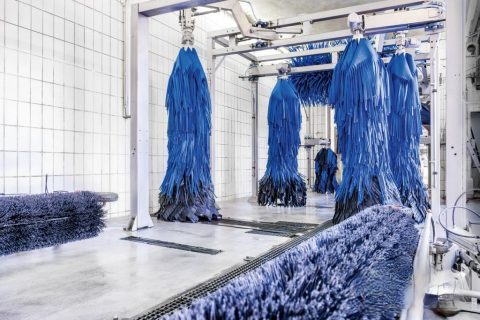
Stotz calls for fewer sensors in the car wash
The car wash manufacturer Stotz relies on fewer sensors for their car wash systems. CarwashPro asked Ulf Brauner from Stotz in an interview about the benefits and experiences of such car washes.
The question of whether carwash systems with or without sensors are better seems almost a matter of trust in the carwash industry. The German manufacturer Stotz from Baden-Württemberg advocates the use of fewer sensors in carwashes, as they have positive experiences with it.
Why does Stotz advocate washing with less sensor technology?
Brauner: “For us it is very simple: Less sensors means less defects. The maintenance of installations with fewer sensors can usually be carried out with the operator’s own resources. Expensive maintenance and high maintenance costs are not necessary. In the end, both our customers and we as a manufacturer save time and money.”
How can the technical implementation be explained so that even without sensors, exactly the right pressure is always applied at the right places on the vehicle and the cars leave the tunnel clean?
“In the past there were purely mechanical washing systems, these have the longest life span and some are still in use. The washing result depends on the operator, for example the quality of the pre-wash. From our point of view, the result is not significantly improved by very complex controls.”
What advantages and disadvantages do you see in sensor-controlled washing systems?
“Sensor-controlled systems offer many advantages to the manufacturer due to high maintenance costs and the sale of spare parts. The disadvantage for the customer arises when sensors are disturbed. Then in extreme cases the system comes to a standstill and specialists are needed for repairs. In our view, the low maintenance costs of systems with few sensors offer a clear advantage. The customer can concentrate on the essentials: the car wash.”
By how much is the maintenance effort reduced without sensors?
“Because mechanical maintenance is also retained with sensor systems, the effort is reduced by at least a third or more.”
How do you describe the washing experience in Stotz carwash systems compared to sensor-controlled systems?
“The end customer doesn’t even notice these processes in the background. He wants a clean car. The wash experience is created by combining the components of a wash system, especially when compacting over short distances.”



